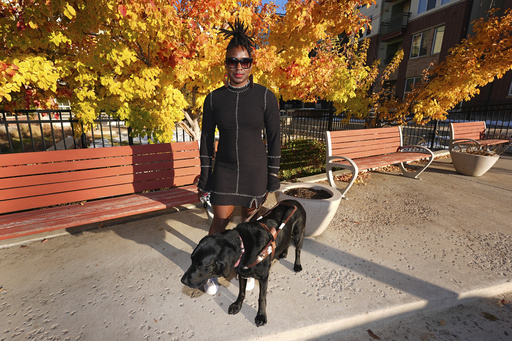
Disabled individuals who rely on rideshare services like Lyft and Uber often find their experiences far from straightforward. Rather than a seamless experience of simply booking a ride and arriving at their destination, those using wheelchairs or accompanied by guide dogs encounter significant challenges. Drivers frequently cancel rides, impose cleaning fees for the presence of service animals, or outright deny service altogether.
In light of these issues, Lyft and Uber are planning to introduce updates to their apps to help mitigate cancellations and improve user experience. However, advocates and users with disabilities emphasize the need for better driver education regarding compliance with the Americans with Disabilities Act (ADA) and stronger anti-discrimination measures. Lynn Dubinsky, who works at a guide-dog training facility in California, criticized the proposed app features as mere “window dressing.” She argued, “This option puts the burden back on the client rather than on the companies themselves to directly address (discrimination) with their drivers.”
Both of these rideshare companies have previously faced federal lawsuits for alleged noncompliance with ADA regulations; Uber settled such a lawsuit in 2022, while Lyft came to an agreement in 2020. Although rideshare options are not the only means of transportation available to disabled individuals in the U.S., as statistically indicated by the 2022 U.S. Bureau of Transportation, many in the disabled community depend significantly on these services.
Take the case of Amber Sherrard, a 32-year-old blind woman living in Denver. She has become accustomed to drivers refusing to transport her guide dog, Della, whom she feels provides more safety than a cane. In one instance, she had to rely on random strangers for a ride from Denver’s airport when a rideshare driver wouldn’t allow Della in the car. The upcoming Uber app update will help users identify themselves as blind or deaf, while Lyft will introduce a feature allowing passengers to communicate that they are traveling with a service animal. Both companies reportedly have hotlines for users to report refusals of service due to assistance animals.
Despite these proposed features, Sherrard is doubtful about their effectiveness since she often informs drivers in advance about her dog and has found ways to convey her visual impairment within her profile. She expressed frustration about the time needed to navigate these barriers, stating, “Just like every other person in America working multiple jobs, trying to survive, I don’t have the time.” She emphasized that the demands of daily life, including bills and errands, affect her just as it does for anyone else.
Similarly, Robert Silva, a 34-year-old from Alameda, California, faces challenges with rideshare drivers due to his folding wheelchair after losing a leg in a car accident. He reported experiencing five unsuccessful requests for a ride within an hour and a half before finally securing a ride to Disneyland. Silva believes some drivers see his wheelchair and assume it will entail additional effort, despite him being able to enter the vehicle on his own most of the time.
In response to these complaints, Uber and Lyft claim they adhere to ADA regulations, which prohibit denying service to individuals accompanied by service animals. The companies assert that their policies are communicated to new drivers during onboarding and that reminders are issued to existing drivers. Those who mistakenly decline rides due to the presence of service animals may face penalties, including potential bans.
According to the ADA, cities with public transportation systems are required to provide paratransit services that are comparable in cost and service to that of regular transit. Cathy Johnston, 70, utilizes Atlanta’s MARTA Mobility paratransit service to avoid having to leave her power wheelchair behind for a more portable option when using Uber or Lyft. However, she shared that this service is often less timely, recounting instances where she had to wait up to 45 minutes, even when booking in advance.
Emerging rideshare alternatives like Uzurv, which focuses on providing door-to-door service for people with disabilities, have sprung up to fill some gaps in transportation availability. They have pledged to take immediate action against drivers who discriminate against disabled patrons. In Portland, Oregon, a significantly reduced cab fleet during the COVID-19 pandemic led to a partnership between TriMet, the city’s transit authority, and Uzurv, which has been positively received by many, including TriMet’s director of accessibility programs, Eileen Collins Turvey. She expressed hopes to develop the service for on-demand use next year but emphasized the importance of enhancing paratransit services for wheelchair users as well.
“We need to get beyond the floor of the ADA,” she stated, reflecting the ongoing challenges and aspirations for improving transportation for those with disabilities.
